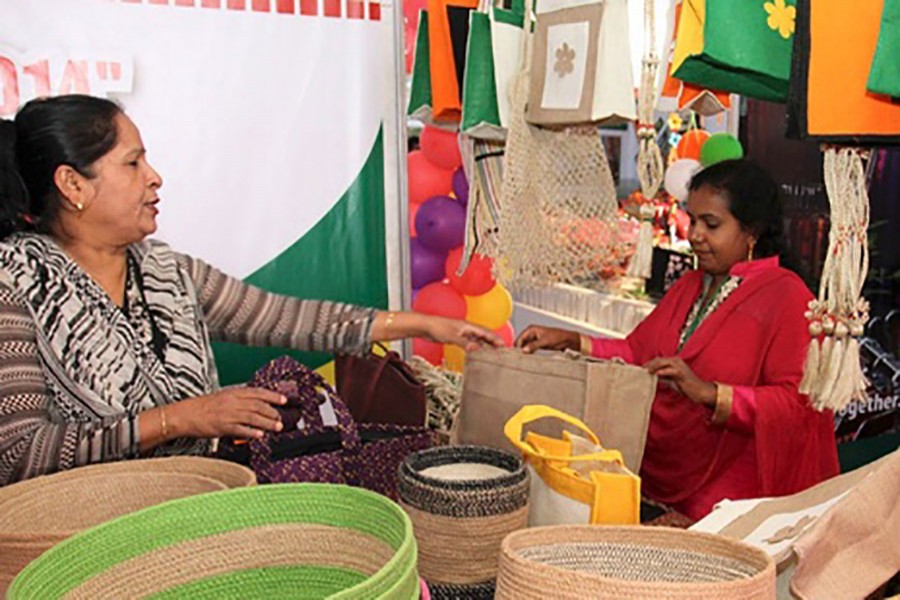Japan sees its investment potentials in the capacity building of Bangladesh's small and medium enterprises (SMEs) which is expected to help improve the sector's economic contribution.
The potentials were highlighted at a seminar jointly organised by Japan-Bangladesh Chamber of Commerce and Industry (JBCCI), Bangladesh AOTS Alumni Society and Chattogram AOTS Alumni Society at Banani Club in Dhaka on Thursday.
The ICOSA seminar titled 'the role of SMEs in the national economy- The case of Japan and how Bangladesh should go ahead' shared the gaps of SME in gross domestic products (GDP) contribution and employment generation of the country with some countries in Asia and the Pacific region.
Professor of Chittagong University Mohammed Saleh Jahur conducted the study, showing that the contribution of SMEs to the country's GDP would be only around 20 per cent and to employment around 40 per cent as compared to more than 50 per cent in both cases in India, Pakistan, Japan, Hong Kong etc.
Professor Dr Wahiuddin Mahmud attended the seminar as chief guest. President of ICOSA (International cooperation Organisation for SMEs in Asia) Dr Naohiro Kurose and former NBR Chairman and Advisor of AK Khan Foundation Dr Muhammad Abdul Mazid also presented separate papers.
In the presentation on changes in the roles of SMEs in Japan and Japan's interest in Bangladesh SMEs', Dr Kurose highlighted the areas of Japan's interest in Bangladesh SMEs as well as Bangladesh's potentials in Japan's SMEs, saying that both Japan and Bangladesh might get benefit in SMEs through cooperation.
"Japanese SMEs now face a major turning point of market contraction and shortage of labour. Through cooperation between Japan and Bangladesh SMEs, can't we find a way for Japanese SMEs to overcome this difficulty and for Bangladesh SMEs to increase their development speed?' said Dr Kurose, who is also a Professor of the Graduate School of Business Innovation, Kaetsu University.
Dr. Mazid showed percentages of different SMEs in the country and said that the highest contribution comes from manufacturing, followed by agriculture and, wholesale and retail trades.
Professor Saleh Jahur in his study highlighted the paucity of fiscal incentives as the number one problem in Bangladesh's SMEs, followed by lack of access to finance, marketing, top-sided SMEs development policies and lack of professionals and unskilled resources and management.
BSS Adds: In Japan, Dr. Kurose said, SMEs account for 99.70 per cent of enterprises or 3.8 million companies, including 410,000 manufacturing companies and those who work there share 70.10 per cent of employed workers or 33.61 million for non-primary industry.
"SMEs are contributing as a place of labour for many people in any era, but in addition to that, SMEs play a different role for the national economy in each era than large enterprises," he added.
Dr. Mazid said SMEs are the backbone of the national economy and it is also vital for sustainable and viable economic development of the country.
The government should take more initiatives, including credit facilities and tax incentives, for further development of the sector, he added.


